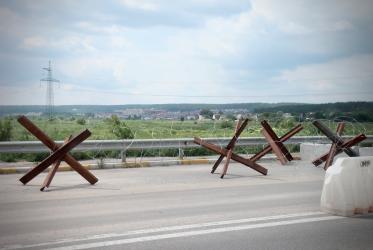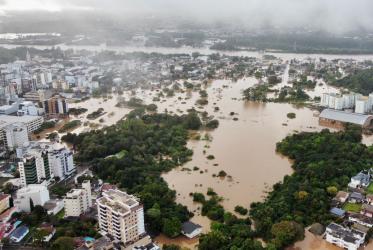Displaying 1 - 20 of 41
07 February 2024
In wake of floods in Brazil, WCC expresses concern and solidarity
09 September 2023
La respuesta a las necesidades humanitarias en Ucrania
27 September 2022
Ukraine: Responding to humanitarian need
08 September 2022
WCC stands in solidarity with victims of major flood in Brazil
17 February 2022
WCC podcast deals with death and dying
15 December 2020














